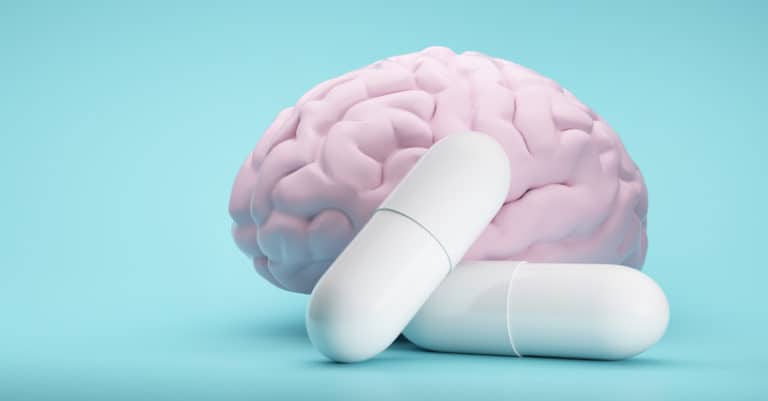Drug addiction can affect your whole body. What exactly will it do for your brain? This guide will go over what will happen if an addiction occurs.
The truth is that your brain’s chemistry will undergo significant changes when a drug is introduced into your system. When you are inducing it regularly, your brain will be able to recognize it. It can even get to the point of dependency.
If you or someone you know needs help with their addiction, you can visit Gallus Detox for more information. Let’s talk more about the human brain and how it can be affected by drug addiction.
What part of the brain is affected by drugs?
When drugs are used for the first time, it will be introduced to the brain. When this becomes a common occurrence, there are three parts of the brain that will be affected: the brain stem, the cerebral cortex, and the limbic system. Each part will be responsible for most of the activity in your brain.
How does drugs affect your brain?
As drugs reach your brain, this can interrupt the normal process. This can lead to changes that may become the ‘new normal’ depending on how much of the drug is being used regularly. First, they will mimic the natural chemical messengers.
After this, they will over-stimulate the reward circuit. Normally, the reward circuit will activate and thus release a feeling of dopamine, the chemical that makes something pleasurable. Depending on the drug, it may cause overflowing amounts of dopamine to occur to the point where your nervous system is flooded.
In scientific terms, this is what causes that ‘high’ to occur. Whenever someone is high on an illicit drug, it means that they have more dopamine in their brain than it can possibly handle. It can also affect the neurotransmitters in your brain as well.
Again, this will depend on the drug. Cocaine and meth can be used to manipulate the nerve cells to release more dopamine to your brain. It can also disrupt the usual recycling process of dopamine.
From there, it can begin to disrupt the communication channels inside your brain. The signal transfer process from one neuron to another will also be affected. If someone is using marijuana or heroin, the drug will have chemicals that will mimic the neurotransmitters and deceive the natural ones.
They will latch onto those receptors and activate the same nerve cells that produce dopamine. Again, this can lead to a disruption of signal transfers between the neurons in your brain. Regardless of the drug being taken, your brain can produce up to ten times more dopamine compared to eating and sex.
What kind of long-term changes can occur with your brain?
Addiction can lead to long-term changes for your brain. This can include a change in how the brain circuits and neurons in the brain operate. Even after someone has beaten addiction, these changes may remain in place.
When someone is taking drugs on a regular basis, the brain will start to change in its efforts to accommodate the additional amounts of dopamine that is produced. It will get to the point where the dopamine’s impact will be very low.
At that point, this is where a tolerance is built up. From there, it will signal that a person will need to increase the dosage to ensure they reach that level of pleasure again. Each level of tolerance will mean a higher dosage, which can lead to poisoning or even overdose (depending on the substance used).
Drugs such as heroin can also cause the brain’s white matter to deteriorate. This is the part of the brain that is responsible for the regulation of behavior, response to stress, and their ability to make decisions. However, there is more serious damage that can be done to the brain (namely from an opioid overdose).
For example, an opioid overdose can be tied to low respiration. This can cause the oxygen supply to the brain to reach dangerous levels. As this happens, hypoxia will develop.
This can cause brain damage, even to the point where it’s permanent. It can also lead to a coma. However, hypoxia is fatal which can be a contributing factor to an overdose death.
Can this affect the brains of adolescents and teens?
Because of ongoing brain development in adolescents and teens, drugs can affect it negatively. For example, the prefrontal cortex is maturing at this age group. This part of the brain is useful for making decisions, assessing their situational awareness, and emotional control.
The use of drugs can affect it to the point where an adolescent or teen will have a hard time making decisions or even managing their emotions when they get older. They may also have a high risk of developing learning disadvantages.
Furthermore, they can abuse substances on a regular basis and disrupt their current brain function in the process. This can lead to lapses in memory, a lack of judgment or motivation, and even inability to control their behavior.
Adolescents and teens may get easily addicted to substances faster compared to adults. On top of that, more people who have struggled with drug use have started out when they were young. It is important that parents talk to their adolescents and teens about the dangers of substance use including the functions it can have on the brain.
Final Thoughts
The human brain is a valuable organ that controls memory, emotions, and so much more. Drug use can affect it in so many ways. Some of the damage done can even be permanent. That’s why it’s important to get the help you need now before things take a turn for the worse.
Despite the fact that you may be recovered, your brain may not fully heal from drug addiction. Your brain functions may not be the best. But you can find ways to manage without having to relapse.
Get the help you need now and do your brain a favor.



